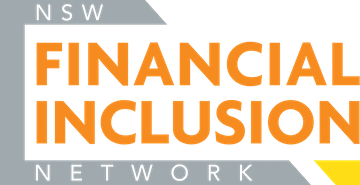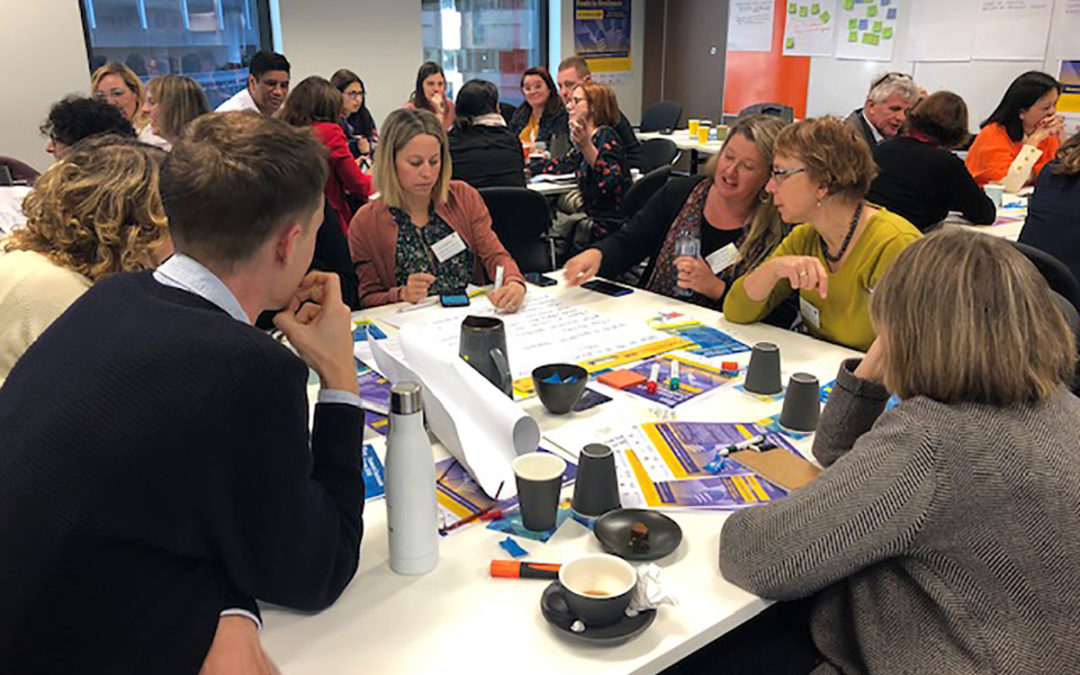The NSW Financial Inclusion Network held the Financial Inclusion Forum for 2019 to expand conversation around financial resilience and bring together a community of people invested in creating positive change. It’s not enough to simply focus on why some people are financial excluded, so achieving a greater understanding of how to increase capacity for financial resilience was this forum’s focus.
The Financial Inclusion Forum for 2019
We thank the NSW Government Department of Communities and Justice for supporting this forum through its sponsorship.
The one day event was held at UNSW’s City Campus in Sydney, on 13 August. The event sold out with an attendance of nearly sixty delegates from fifty organisations. The day’s agenda included nine diverse, engaging speakers and two workshops exploring our two key focus areas for the day – building social capital and economic resources.
Jenni Beetson-Mortimer, Chair of the NSW Financial Inclusion Network, facilitated the forum. Jenni said:
“We have three clear goals for this forum, the first being to expand conversation around financial resilience, the second to explore two of the main building blocks of financial resilience and the third to provide a platform for delegates to gain further knowledge and insight into innovations and solutions that can be applied via a cross-sector approach.”
Morning session – building social capital
We heard from four speakers during the morning session with a focus on building social capital. A complex issue with many aspects, the concept of building social capital was truly demonstrated by the diverse presentations which included research perspectives, first nations approaches, consulting and funding opportunities and even not for profit theatre arts perspectives.
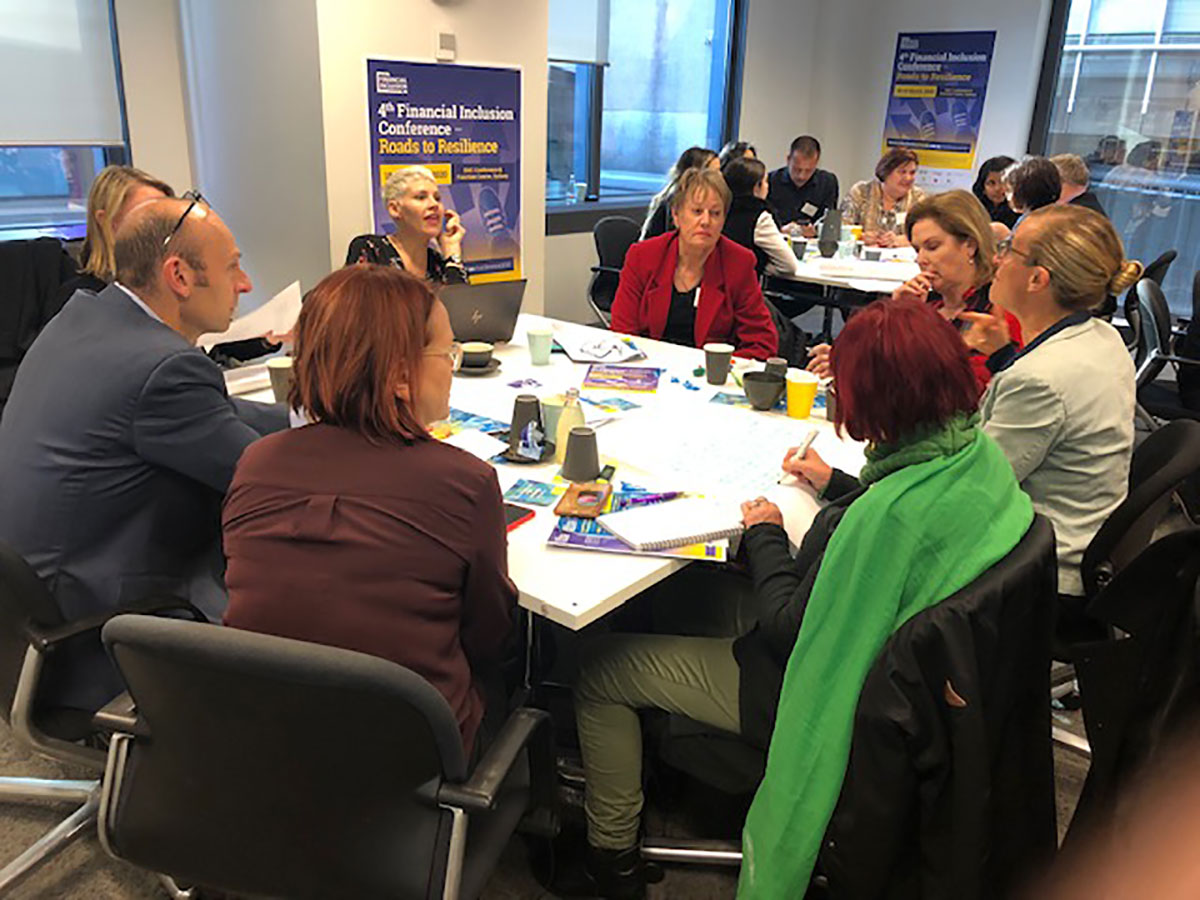
Following are links to some of the presentations that our morning speakers delivered.
- Dr. Archana Voola from Centre for Social Impact – Financial resilience: do we need another concept?!?
- Phil Usher from First Nations Foundation – Social capital and economic resources.
- Louise Campbell from Social Ventures Australia – Developing social capital responses to financial exclusion: funerals financial hardship initiative.
Dr. Archana Voola from Centre for Social Impact and one of our Financial Inclusion Network members set the scene for the forum, addressing the current state and the realities of financial exclusion in Australia. Her presentation provided an analysis of the outcomes, agents and levers of building financial resilience. Summing up, Dr. Voola said we need to:
“Build financial resilience for a good day, a bad day and the unexpected day.”
The morning was rounded off with a collaborative workshop considering levers for change and identifying innovative strategies that build social capital.
Afternoon session – economic resources
Five informative and diverse presentations were heard in the afternoon session,. Following are links to some of the presentations that our afternoon speakers delivered.
- Joanna Quilty from NSW Council of Social Service – Meeting the cost of living in NSW.
- Eliza Anderson from National Australia Bank – Economic resources.
- Andrea Comastri from Payce Foundation – Financial (and social) inclusion.
- Rebecca Pinkstone from Bridge Housing – Hand up: financial inclusion for social housing tenants.
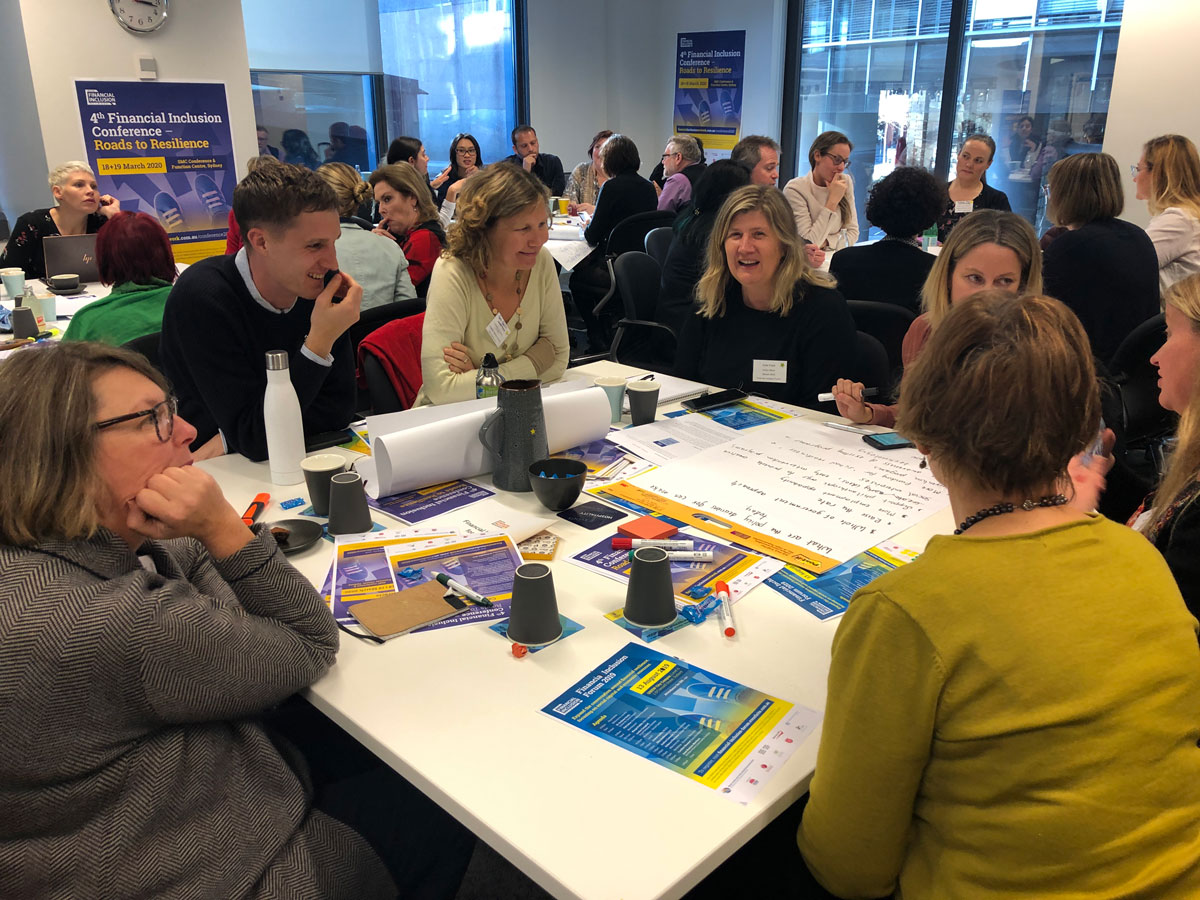
Our second workshop had a upwards focus, with participants asked to contribute through the advocacy lens. Capitalising on the experience and cross-sector diversity at the tables, participants identified new policy decisions for government and the role of the private sector to build economic resources. Work groups focused their discussion around two key areas:
- High cost of credit, income savings and debt management.
- Capacity to raise $2000 in an emergency, meeting the cost of living.
Closing thoughts
Success at this forum was attributed to the fifty participant organisations, bringing diverse perspectives from government, the not for profit and the private sectors and, most importantly, hearing the perspectives and voices of our first nations peoples.
The forum provided an opportunity to consider the challenges, develop new ideas and to be inspired with real innovation that is occurring now to build both the social capital and economic resources of people who are financially excluded.
Outcomes from this forum will build on the previous work of the NSW Financial Inclusion Network and contribute to a further position paper on financial inclusion. This forum provides a prelude to the 4th Financial Inclusion Conference – Roads to Resilience.
Next step: the 4th Financial Inclusion Conference in 2020 – Roads to Resilience
The 4th Financial Inclusion Conference – Roads to Resilience will be held in Sydney over 18 and 19 March 2020. Hosted in partnership with Northern Rivers Community Gateway and Centre for Social Impact, Roads to Resilience will deepen conversation around the four central themes of financial resilience: economic resources; financial products and services; financial knowledge and behaviour; and social capital.
The conference will focus these conversations on developing innovative programs and service delivery. It will showcase current research and celebrate the person-centred approach of not for profits, government initiatives and highlight perceived funding gaps in this sector.
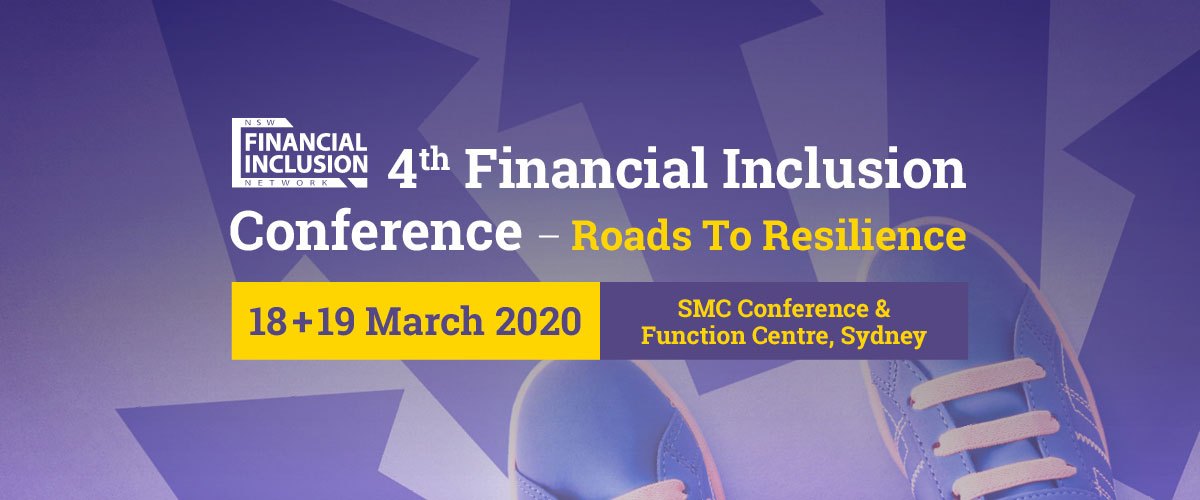
We are pleased to confirm that two international keynote speakers have accepted our invitation to attend and present at the conference, Professor Sharon Collard, Research Director at the University of Bristol Personal Finance Research Centre and Professor Frederick Wherry, Professor of Sociology at Princeton University. Read more details about these speakers here.
We are seeking abstracts for presentation at Roads to Resilience. If you are involved in this space and have some specialist knowledge to impart, we would like to hear from you. Read more details about how to submit your abstract here.
We are also looking for sponsorship partners to deliver Roads to Resilience conference with us. There are many opportunities to be involved as a sponsorship partner, with many benefits to your organisation and the work you do. Read more details about sponsorship opportunities here.
Current data from the Australian Bureau of Statistics and research into financial inclusion identifies a strong need for innovative policy in creating financial resilience. It is time to expand conversation about financial inclusion and to shape policies that steer us in the direction of better financial health. Join us at Roads to Resilience and be a part of this groundbreaking conference. Register your attendance at the conference here.
